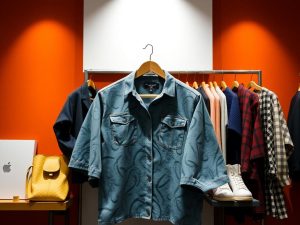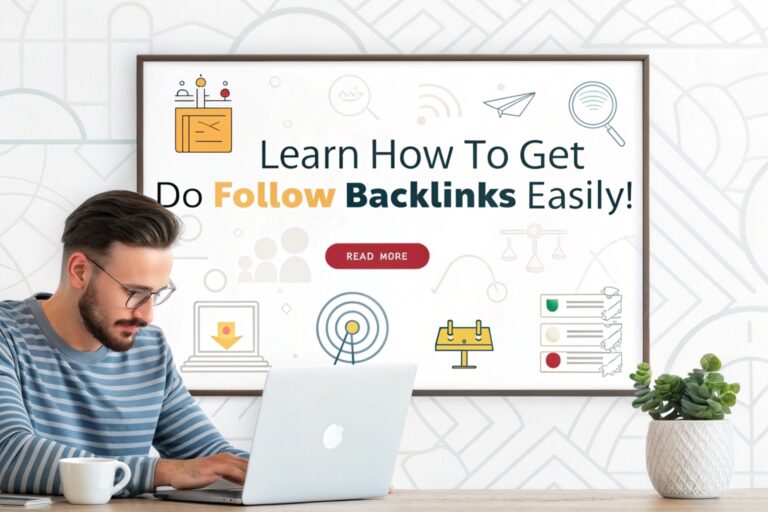Marketing Agency for Clothing Brand: Boost Your Fashion Business in 2024
Key Takeaways:
- Relationship marketing is the top strategy for fashion brands in 2024
- Focus on engaging with your existing audience rather than constantly growing it
- Personalized customer service is crucial for building trust and loyalty
- Leverage social media as a conversation channel, not just for posting
- Email marketing with personalized sequences can increase repeat customers
- Understanding your target audience’s psychology is essential for effective marketing
- Free strategies like engaging in comments and DMs can amplify your reach

The Fashion Marketing Landscape in 2024
In the ever-evolving world of fashion, staying ahead of marketing trends is crucial for brand success. As we dive into 2024, the landscape of fashion marketing has shifted dramatically. Gone are the days of relying solely on flashy ads and influencer partnerships. Today, the most successful clothing brands are those that understand the power of connection and relationship-building with their customers.

The Rise of Relationship Marketing in Fashion
Relationship marketing has emerged as the golden ticket for clothing brands in 2024. This approach focuses on creating strong, emotional connections with customers rather than simply pushing products. For small to medium-sized fashion businesses, this strategy offers a unique advantage over larger corporations.
Why? Because smaller brands can offer something that big fashion houses can’t: a personal touch. By leveraging your existing audience and diving deep into meaningful interactions, you can create a loyal customer base that not only buys from you but also advocates for your brand.

Leveraging Your Existing Audience: Quality Over Quantity
One of the most exciting aspects of relationship marketing is that it doesn’t require a massive audience. In fact, it’s more about the quality of your connections than the quantity of your followers. This is great news for emerging fashion brands or those with limited marketing budgets.
Instead of constantly chasing new followers, focus on engaging with the audience you already have. Respond to comments, initiate conversations in DMs, and show genuine interest in your customers’ lives and fashion needs. This approach not only builds trust but also helps you gather valuable insights about your target market.
The Power of Personalized Customer Service
In the digital age, exceptional customer service has become a powerful marketing tool. When a customer reaches out with a question or concern, view it as an opportunity to build a relationship, not just solve a problem. Personalized, thoughtful responses can turn a one-time buyer into a lifelong fan of your clothing brand.
Consider implementing a system where you or your team can track customer interactions and preferences. This allows you to provide tailored recommendations and show that you remember and value each customer. For instance, if a customer mentioned they were looking for a dress for a summer wedding, follow up later to see how it went and suggest accessories for their next event.

Social Media: From Broadcast to Conversation
Social Media Engagement Tips
- Ask open-ended questions in your posts
- Respond to every comment, even if it’s just with an emoji
- Use polls and surveys to gather customer opinions
- Share behind-the-scenes content to humanize your brand
- Host live Q&A sessions to directly interact with your audience
Social media platforms are no longer just billboards for your latest collection. In 2024, successful fashion brands use these platforms as two-way communication channels. Instead of solely focusing on creating the perfect post, prioritize engaging with your followers.
Ask questions about their style preferences, host live sessions where you answer fashion queries, and share behind-the-scenes glimpses of your brand. This approach not only builds relationships but also helps with algorithmic reach, as platforms favor accounts with high engagement rates.
Email Marketing: Personalizing the Customer Journey
Email remains a powerful tool in the fashion marketer’s arsenal, but the key is personalization. Gone are the days of generic blast emails. In 2024, successful clothing brands use segmented lists and behavior-triggered emails to create a personalized journey for each customer.
For example, after a customer makes a purchase, set up a sequence of emails that:
- Confirms their order
- Provides styling tips for their new item
- Asks for feedback a week after delivery
- Suggests complementary pieces based on their purchase
This kind of thoughtful, personalized communication keeps your brand top-of-mind and encourages repeat purchases.
Understanding Your Target Audience: The Psychology of Fashion
To truly excel in relationship marketing, you need to understand the psychology behind your customers’ fashion choices. What motivates them to buy? Is it the desire for self-expression, the need to fit in, or the pursuit of quality and sustainability?
Conduct surveys, analyze purchasing patterns, and engage in meaningful conversations with your customers to build detailed buyer personas. This deep understanding allows you to create marketing messages and product offerings that resonate on an emotional level.

Leveraging User-Generated Content
In the world of fashion, seeing is believing. Encourage your customers to share photos of themselves wearing your clothing. This not only provides social proof but also creates a sense of community around your brand. Feature these photos on your website and social media, always giving credit to the original poster.
User-generated content is like gold for clothing brands. It’s authentic, relatable, and often more influential than professional photo shoots. Plus, it makes your customers feel valued and part of your brand story.
Sustainability and Ethical Marketing: More Than Just Buzzwords
In 2024, consumers are more conscious than ever about the environmental and ethical impacts of their fashion choices. If your clothing brand has sustainable practices or ethical manufacturing processes, make this a key part of your marketing strategy.
Be transparent about your supply chain, share stories about the artisans who make your clothes, and educate your audience about sustainable fashion. This not only attracts conscious consumers but also builds trust and respect for your brand.
Influencer Partnerships: Quality Over Quantity
While influencer marketing isn’t new, the approach has evolved. Instead of partnering with mega-influencers for one-off posts, focus on long-term relationships with micro-influencers who genuinely love your brand. These partnerships feel more authentic and often result in higher engagement rates.
Look for influencers whose values align with your brand and who have a highly engaged, niche audience. Collaborate on content that goes beyond simple product placement, such as styling challenges or behind-the-scenes looks at your design process.

Measuring Success: Beyond Sales Figures
In relationship marketing, success isn’t just measured in sales figures. While revenue is important, also track metrics like:
- Customer Lifetime Value (CLV)
- Repeat Purchase Rate
- Net Promoter Score (NPS)
- Engagement Rate on Social Media
- Email Open and Click-Through Rates
These metrics give you a more holistic view of how well you’re building and maintaining customer relationships.
Frequently Asked Questions
- What is relationship marketing in the context of a clothing brand?Relationship marketing for clothing brands focuses on building long-term connections with customers through personalized interactions, rather than just promoting products. It involves engaging with customers on a deeper level to foster loyalty and repeat business.
- How can a small clothing brand compete with larger fashion companies? Small clothing brands can compete by leveraging their ability to provide personalized experiences and build genuine relationships with customers. Focus on niche markets, offer exceptional customer service, and create a strong brand story that resonates with your target audience.
- What are some free marketing strategies for clothing brands? Free strategies include engaging actively on social media, responding to customer comments and DMs, creating valuable content for your audience, encouraging and featuring user-generated content, and optimizing your website for SEO.
- How important is sustainability in fashion marketing today?Sustainability is increasingly important in fashion marketing. Many consumers now prioritize ethical and environmentally friendly practices when choosing clothing brands. Highlighting your sustainable practices can be a significant differentiator and attract conscious consumers.
- What role does email marketing play in fashion brand promotion?Email marketing is crucial for nurturing customer relationships and driving sales. It allows for personalized communication, targeted promotions, and the ability to re-engage past customers. Effective email marketing can significantly increase customer lifetime value.
Written by Mohamed Ezz







